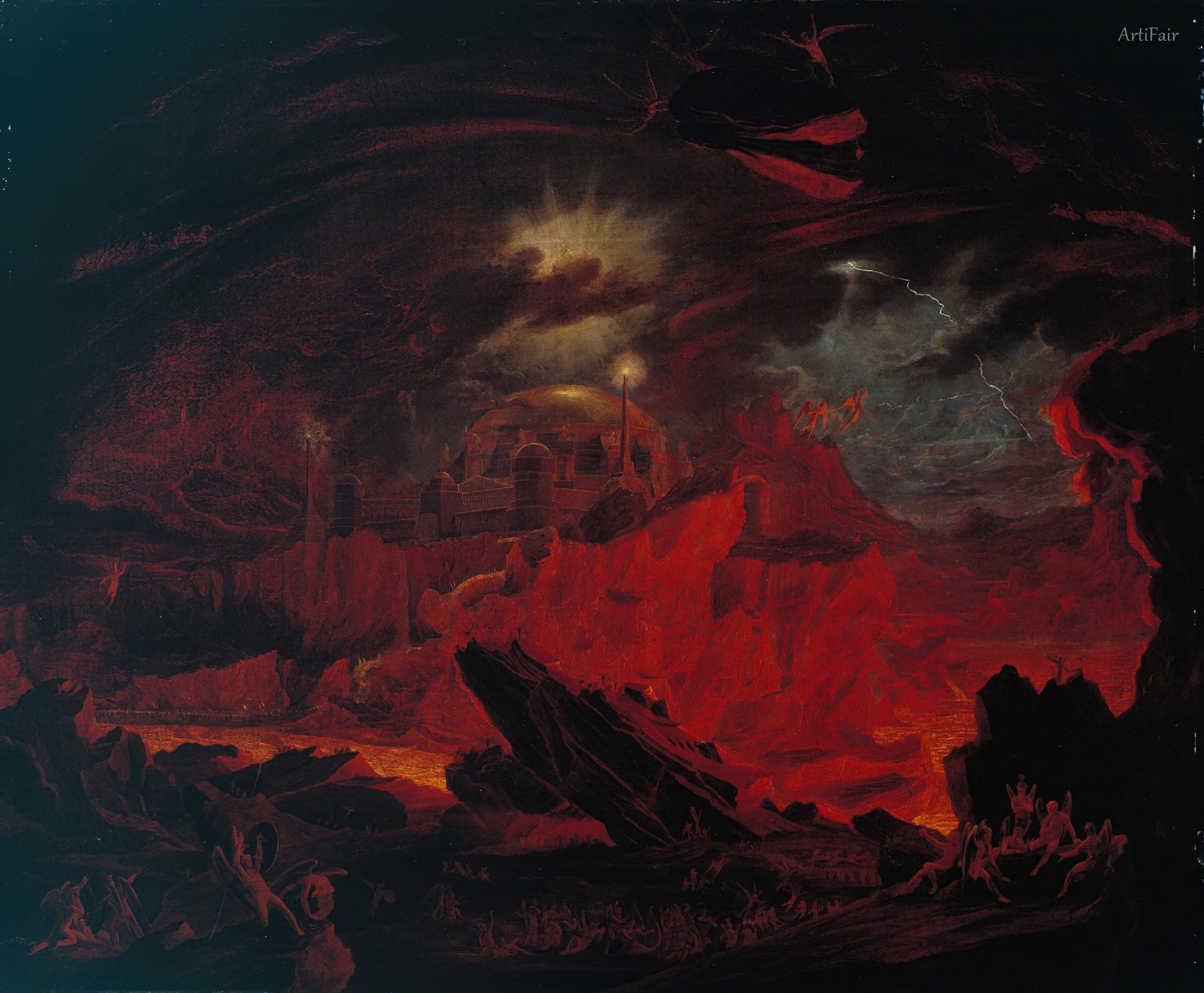
Art Appreciation
In this evocative work, a realm of anguish and despair unfolds, a striking depiction of fallen angels entwined in their eternal punishment. The composition masterfully balances vast, tumultuous landscapes with the claustrophobic presence of jagged mountains and fiery pits, invoking a sense of chaos that seems almost palpable. At the heart of the painting, an oppressive, dark sky looms, punctuated by streaks of light that hint at hope or perhaps a mocking reminder of what once was. The color palette is awash in deep reds, blacks, and occasional flashes of gold, creating a hauntingly beautiful tableau that is both mesmerizing and unsettling; every brushstroke seems to tell its own story of suffering and rebellion.
The emotional impact of this artwork is profound. One cannot help but feel a chill upon gazing into the depths of despair portrayed; it's a journey through Dante's inferno, yet rendered with a distinct Romantic sensibility. The ghostly figures of the angels, their wings torn and their faces etched with grief, compel the viewer to confront the themes of punishment and loss. This piece, crafted during a time when artists began to explore the darker aspects of the human experience, resonates deeply with the socio-political upheavals of the 19th century, reflecting collective anxieties and existential musings that echo even today. The artwork stands as a significant marker, bridging the gap between the sublime and the grotesque, inviting all who behold it to reflect on the dual nature of beauty and suffering, and the consequences of defiance against divine order.